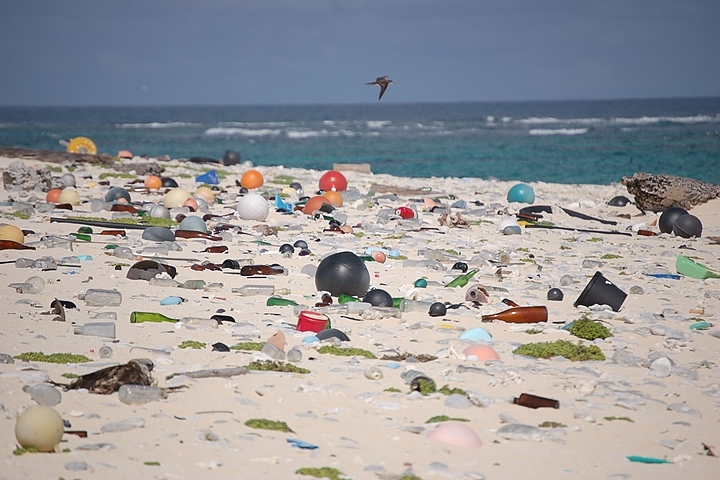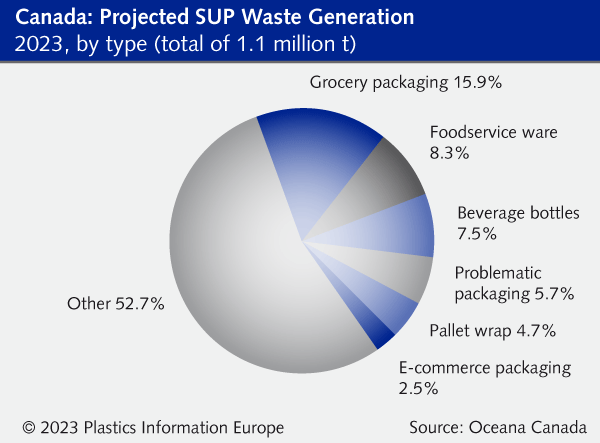PACKAGING CANADA
Environmental group unveils plan for national SUP reduction / Report names problematic sectors
A federal policy roadmap released recently by marine environment protection organisation Oceana Canada (www.oceana.ca/en), titled Breaking the Plastic Cycle, has highlighted the possibility and need of reducing single-use plastic packaging in Canada, which accounts for about half of the country’s plastics waste. According to the report, Canada can reduce its annual single-use plastics use by one-third, or 720,000 t.
 The problem is apparent (Photo: Oceana) |
Recycling alone can’t solve the problem, Oceana said. Of the 4.3 mn t of plastics waste discarded in Canada in 2019, only 8% was recovered, sorted, and recycled into pellets or flakes.
“Each year, more than 8 mn t of plastics end up in our oceans,” the group noted. “That’s roughly equivalent to dumping an entire garbage truck filled with plastics into the ocean every minute.” The report added that without action, the annual global flow of plastics into the ocean is set to nearly triple by 2040.
Related: Interview with CIAC CEO Bob Masterson
Oceana Canada’s recommendations included implementing bans on unnecessary and hard-to-recycle items, pollution prevention plans for key sectors to establish plastics reduction requirements, and refill and reuse provisions.
 | |
The plan identifies seven sectors as the biggest sources of SUPs, collectively generating 41% of plastic packaging waste in the country, and provides possible solutions:
- Grocery stores: Generate more than 382,430 t/y of SUP waste, excluding beverage bottles sold in-store.
Oceana’s recommendation: Unwrap products, bring back refill systems and remove all non-recyclable packaging from stores. - Beverage bottles: Represent more than 178,000 t/y of SUP waste.
Recommendation: Phase in reuse requirements and build on deposit return systems that already exist for alcoholic beverages across the country, resulting in 70% of the bottles being refillable and reusable by 2040. - Polyvinyl chloride or polystyrene: Canada produces nearly 135,000 t/y of SUPs from these materials.
Recommendation: Ban distribution and shift to more recyclable materials. - Dine-out foodservice: Creates 125,000 t/y of plastic packaging waste.
Recommendation: Bring major restaurants, food couriers together nationally to phase out non-recyclable takeout containers and introduce reusable containers. - Pallet wraps: Over 111,000 t/y of it is thrown away.
Recommendation: Spur innovation in the sector, including reusable binding techniques such as nets instead of single-use films. - Dine-in foodservice: Generates over 70,000 t/y of SUP waste.
Recommendation: Ban distribution. - E-commerce: Generates over 60,000 t/y SUPs, led by a few industry giants.
Recommendation: A combination of bans and removal of single-use plastics.
16.11.2023 Plasteurope.com [253978-0]
Published on 16.11.2023
